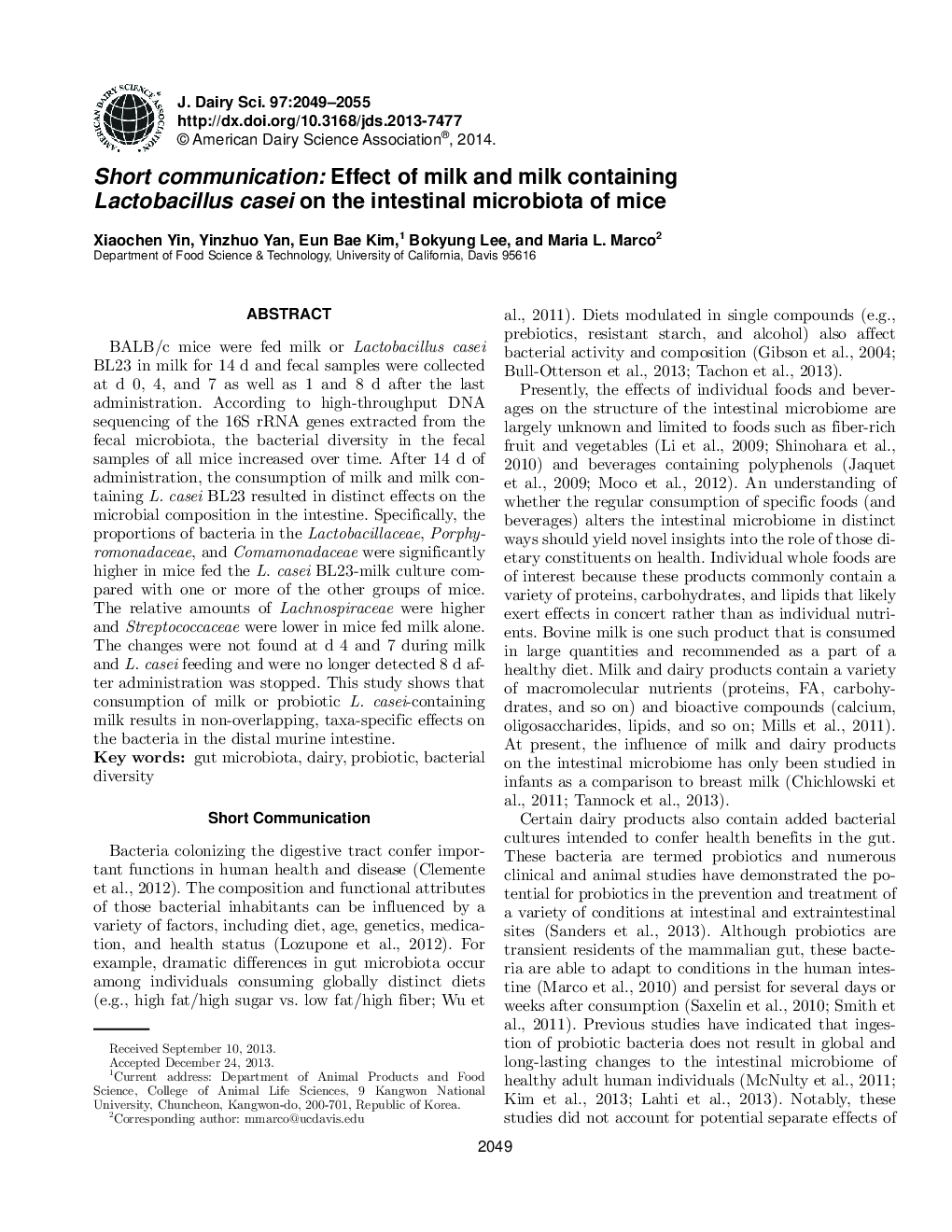| Article ID | Journal | Published Year | Pages | File Type |
|---|---|---|---|---|
| 10976646 | Journal of Dairy Science | 2014 | 7 Pages |
Abstract
BALB/c mice were fed milk or Lactobacillus casei BL23 in milk for 14Â d and fecal samples were collected at d 0, 4, and 7 as well as 1 and 8Â d after the last administration. According to high-throughput DNA sequencing of the 16S rRNA genes extracted from the fecal microbiota, the bacterial diversity in the fecal samples of all mice increased over time. After 14Â d of administration, the consumption of milk and milk containing L. casei BL23 resulted in distinct effects on the microbial composition in the intestine. Specifically, the proportions of bacteria in the Lactobacillaceae, Porphyromonadaceae, and Comamonadaceae were significantly higher in mice fed the L. casei BL23-milk culture compared with one or more of the other groups of mice. The relative amounts of Lachnospiraceae were higher and Streptococcaceae were lower in mice fed milk alone. The changes were not found at d 4 and 7 during milk and L. casei feeding and were no longer detected 8Â d after administration was stopped. This study shows that consumption of milk or probiotic L. casei-containing milk results in non-overlapping, taxa-specific effects on the bacteria in the distal murine intestine.
Related Topics
Life Sciences
Agricultural and Biological Sciences
Animal Science and Zoology
Authors
Xiaochen Yin, Yinzhuo Yan, Eun Bae Kim, Bokyung Lee, Maria L. Marco,
